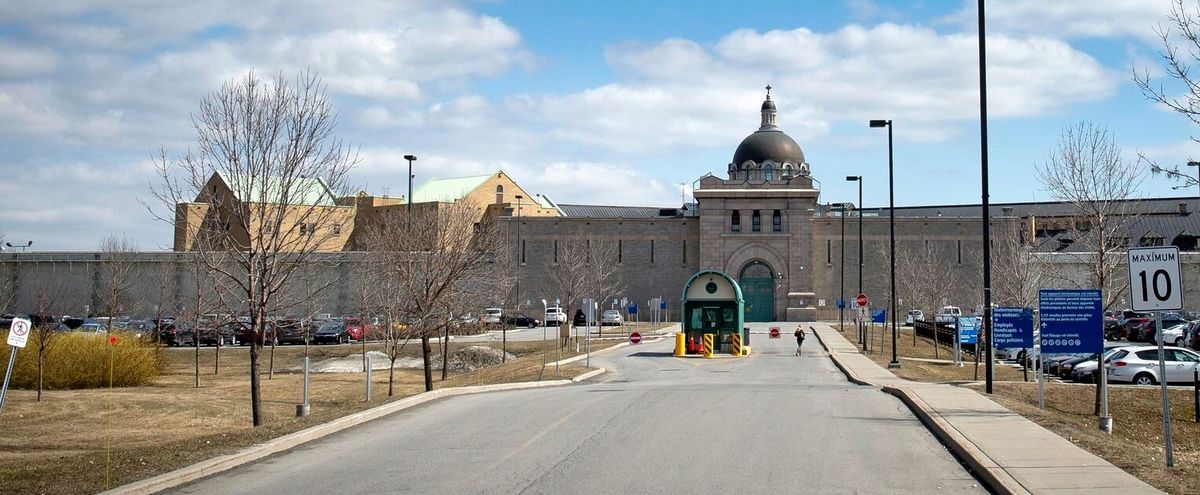
From Anti-Carceral Group
20 May, Montreal – In the wake of today’s announcement that a 72-year-old prisoner at Bordeaux has died of COVID-19, family members and prisoner advocates are calling for immediate and significant actions to keep prisoners and the community safe. In doing so, they reject Minister of Public Security Geneviéve Guilbault’s claim at today’s press briefing that the preventive measures implemented by her ministry are working and that nothing more needs to be done.
Bordeaux is the provincial prison hardest hit by COVID-19 anywhere in Canada. The first case at the prison was recorded on April 24th. Since then, the number of prisoners infected has risen to 92 and the number of staff infected has risen to 35. In spite of the worsening situation, the response of prison officials and the Ministry of Public Security has been lackluster. Reports from inside suggest that prison guards have failed to wear masks and gloves consistently, while prisoners have never been provided adequate personal protective equipment. More importantly, prison staff have failed to provide testing or health care when prisoners have exhibited symptoms. Indeed, the deceased prisoner, believed to be Robert Langevin, had been deathly ill for more than a week before his death, and was never provided the care he needed.
“The circumstances surrounding this death are more than troubling. The Ministry of Public Security has demonstrated through its inaction that it is indifferent to the conditions of prisoners in this dangerous time,” said Jean-Louis Nguyen, whose partner is incarcerated at Bordeaux. “Bordeaux prison failed to provide adequate care to Mr. Langevin, despite repeated complaints from him regarding his state of health for the three days leading up to his death. This death was preventable and, in my eyes, scandalous.”
Rather than providing health care, the major response to the COVID-19 crisis at Bordeaux has been to confine prisoners to their cells 24 hours per day. Many prisoners have been on 24-hour lockdown since April 24th. This has meant no showers, no television, no reading material, and nothing to do. They were also unable to make phone calls to family members until May 12, when the prison began providing detainees a 5-minute phone call every two days.
24-hour confinement, in addition to violating prisoner’s human rights, also aggravates their physical and mental health. “From the start, the prison has put the health of detainees in danger and has never provided the care they need,” said a woman whose partner is in pretrial detention in Bordeaux. “My partner is in a sector that has been on 24-hour confinement since April 28. He suffers from chest pain and sought medical attention, but received nothing. Respect for human rights means improving health practices, providing medical care, and massively reducing the prison population.”
Prisoners at Bordeaux are forcibly exposed to COVID-19 and denied appropriate health care. Many prisoners feel they have been left to die. “We’re people too and we’re clearly being left here to die,“ said one prisoner. “No one is coming up with a real plan to stop COVID from spreading in here. We fear for our lives now more than ever.”
The concerns of prisoners are mirrored by their family members outside. “The prison treats people like animals,” said Valéry Goudreau, whose partner is on remand at Bordeaux. “My partner is sick, they refuse to take care of him, and the guards have been refusing him food for four days now because he will not get on his knees to receive the tray.”
The death of a prisoner should be a moment to reflect on the measures the Quebec government and prison officers have implemented to keep prisoners and the community safe. While Geneviève Guilbault believes that her ministry has taken appropriate measures and that nothing needs to change, family members and prisoner advocates believe otherwise. “From the beginning, people have been calling for the release of prisoners to allow proper social distancing,” noted Ted Rutland, a member of the Anti-Carceral Group. “Ontario has released more than 3,000 prisoners, and four other provinces have released 25-45% of their prison populations. Quebec refuses to take such steps, even as Quebec’s prisons are the hardest-hit in the country and 75% of provincial prisoners are awaiting trial and could be released on bail.”
While MM. Guilbault announced on May 6th that a small number of prisoners would be eligible for release, these numbers are far too small to make a difference. “We now have proof that the minister’s announcement on May 6 was insufficient and ineffective on the ground,” said Jean-Luis Nguyen. “As a loved one, I urge the authorities to intervene, once and for all, to prevent such a tragedy from happening again within these walls. Quebec can no longer afford to continue to neglect incarcerated people.”
For more information contact:
Anti-Carceral Group
anticarceralgroup@riseup.net


